On 10 June 2025, Law no. 76 of 15 May 2025, containing “Provisions for worker participation in the management, capital and profits of companies”, published in the Official Journal no. 120 of 26 May 2025, came into force.
The Law regulates the managerial, economic and financial, organizational and consultative participation of workers in the management, organization, profits and results, as well as in the ownership of companies and identifies the methods of promoting and incentivizing the forms of participation, giving concrete implementation to art. 46 of the Constitution, in order to strengthen the collaboration between employers and workers, to preserve and increase employment levels and to enhance work.
The four modes of participation
The law introduces and regulates four forms of worker participation, which are detailed below.
- Management participation (articles 3 and 4)
Collective agreements provide for the possibility of introducing, in company statutes, the presence of worker representatives on supervisory boards, in companies that adopt the dualistic system (article 2409-octies of the civil code), as well as on boards of directors and management control committees, for companies that adopt the traditional governance model (article 2380-bis of the civil code), or the monistic model (article 2409-octiesdecies of the civil code), respectively. Worker representatives must possess the integrity and professionalism requirements provided for by law, and, in the case of the monistic or traditional management system, they cannot assume management roles for the three years following the termination of their mandate, if they are not already held. - Economic and financial participation (articles 5 and 6)
Mechanisms for participation in company profits and forms of widespread shareholding are encouraged: for the year 2025 only, in the event of distribution of a share of profits to workers, in an amount greater than 10% of the overall profits, carried out in accordance with national or territorial collective agreements, the threshold for preferential taxation (substitute tax) is raised to 5,000 euros gross, instead of the original 3,000 euros. Furthermore, financial participation plans that provide for the payment of shares in place of performance bonuses are encouraged; the dividends deriving from these, up to 1,500 euros per year, are exempt from income tax for 50% of their amount. - Organizational participation (articles 7 and 8)
Companies may establish joint committees – composed of company and worker representatives – to prepare improvement and innovation plans.
In addition, collective agreements may provide for the introduction into the company organizational model of figures dedicated to training on welfare, remuneration policies, quality of workplaces, disability and parenting. - Consultative participation (articles 9 and 10)
The principle of preventive consultation is strengthened: unitary or company trade union representatives, or, again, worker representatives, within joint committees, may be consulted on company decisions. Collective agreements establish the members of the committees, as well as the location, timing, methods and content of the consultation. The procedure is started with the communication of the convocation of the commission, the consultation must begin within 5 days of the request to start and it is considered concluded, unless otherwise agreed, within the following 10 days.
The non-binding opinion of the workers’ representatives may be formalized in a written document to be attached to the minutes of the consultation. A second moment of discussion is also foreseen, in which the employer, within thirty days of the closure of the procedure, illustrates the decisions taken and, if applicable, the reasons for the failure to accept the observations formulated.
Training, monitoring and institutional promotion (Articles 12 and 13)
The law also establishes a permanent National Commission at the CNEL, made up of seventeen members (one belonging to the CNEL, one to the Ministry of Labour, six indicated by the trade unions, six indicated by the employers’ organisations, as well as three jointly appointed) and invested with the following functions:
- collection of good corporate practices on participation;
- non-binding resolution of interpretative disputes on participatory procedures;
- drawing up a biennial report on the effective implementation of the measures;
- collection of minutes of the meetings of the joint bodies;
- presentation to the CNEL of proposals for improvements and incentives for the use of participatory tools.
Furthermore, mandatory training of at least 10 hours per year is provided for workers’ representatives who participate in the joint commissions or in the boards of directors or supervisory boards, pursuant to Articles 3 and 4 of this law.
Application and safeguard clause (articles 11 and 14)
The law also applies to cooperative societies, where compatible.
In any case, the more favorable provisions contained in collective agreements remain valid.
The opinions and information contained in this Newsletter are for informational purposes only and cannot be considered sufficient to adopt operational decisions or the assumption of commitments of any nature, nor do they represent the expression of a professional opinion.
The Newsletter is the property of Studio Legale Carlo Pisani e Associati.
For further information on the topics covered or the analysis of opportunities in drafting collective agreements compliant with the new legislation and/or in implementing sustainable participatory models consistent with the company structure, contact:

